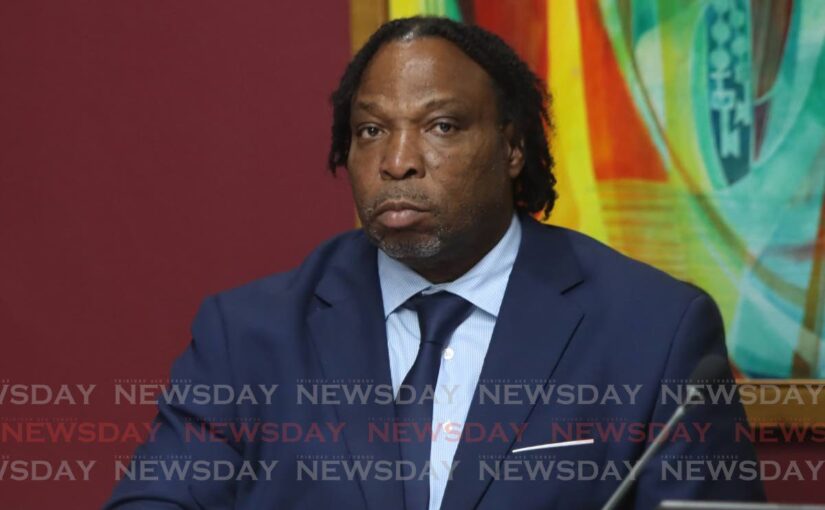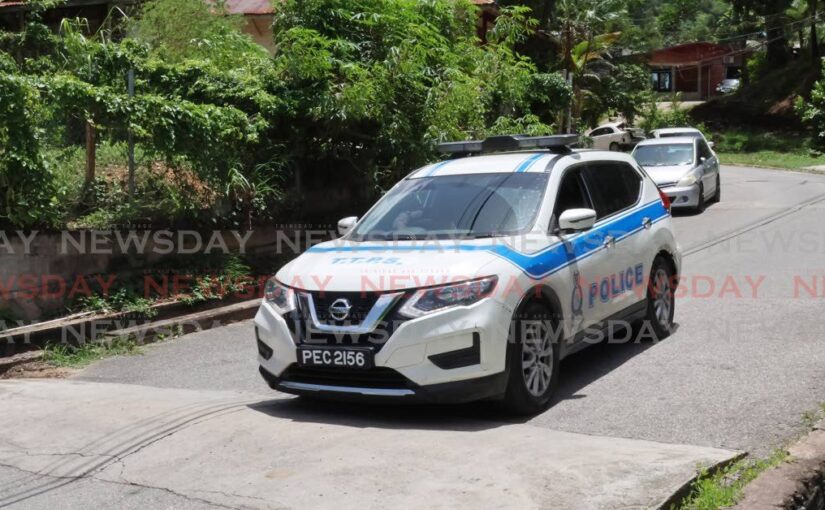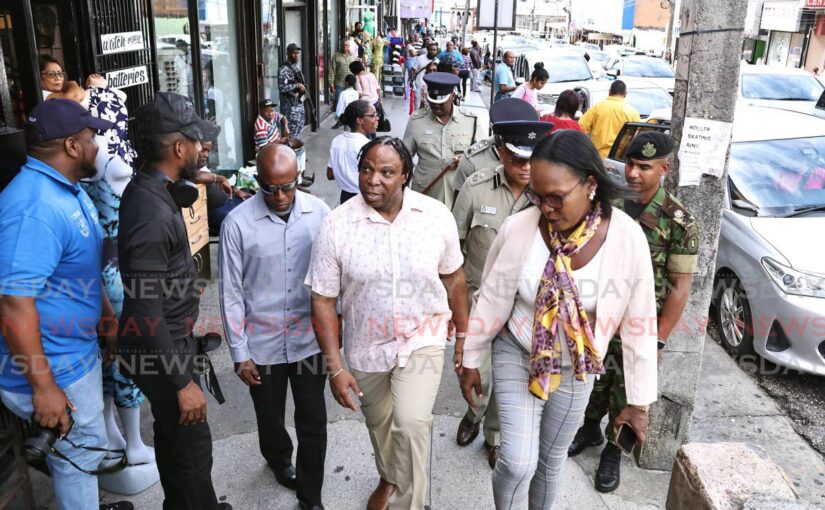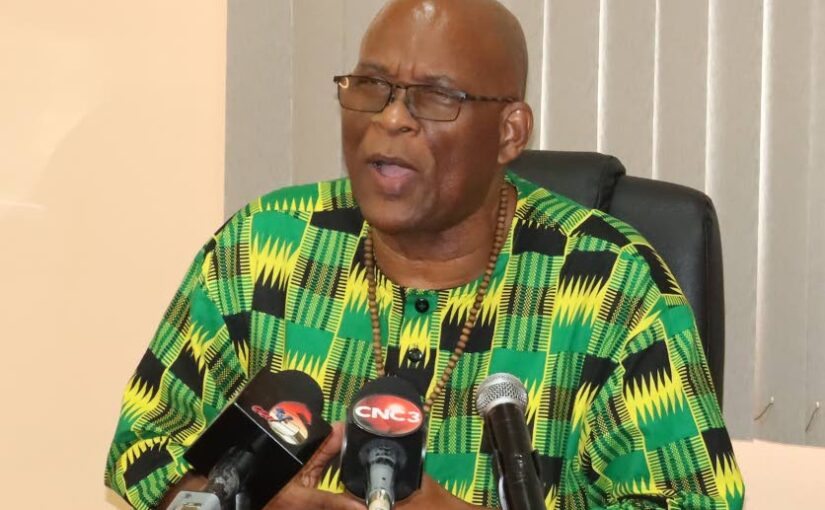

Minister in the Ministry of National Security Keith Scotland. - File photo by Angelo Marcelle
Minister in the Ministry of National Security Keith Scotland says consideration should be given once again to allowing officers from private security companies take on some roles and functions of police officers in order to get more boots on the ground in the fight against crime.
He made the comment while speaking at the launch on November 20 of a special elite security service by the National Maintenance Training and Security Company (MTS).
The service provides protection for high-value clients and includes personal bodyguard services, executive security escort, securing highly sensitive areas of a facility by officers trained in surveillance countermeasures, protective security protocols, suicide bomber countermeasures, emergency medical care, bomb search techniques, and protective security driving.
Police and security officers working together to fight crime was first implemented a decade ago with the formation of the Community Comfort Patrols (CCP) programme, under the then Peoples Partnership, but was cancelled in 2016.
Noting the government’s challenge in with dealing with crime, Scotland said the launch of the service provides an opportunity for private security firms to partner with the Ministry of National Security.
>
He said both private security agencies and national security have strengths and weaknesses, Scotland said they both have much to gain from each other if they intensify their co-operation.
He pointed to the sharing of information, increased training opportunities and increased availability of officers thereby allowing more boots on the ground in the fight against crime.
“There are many functions performed by police which are not directly related to crime prevention, investigations and the combating of crime. These support functions impact upon the efficient utilisation of trained police officers and resources.
"Could those services not be delegated to vetted and trained security companies in order to put more police (officers) on the ground where they can make a greater impact?”
“Why is it necessary to have a police officer guard a government building? Even if there is some sensitive information there, a cadre of private security personnel who are properly trained and properly vetted can do that."
He said guarding detention facilities and serving warrants are other ways security officers can assist the police.
A private security company has had a contract with the state for several years to transport prisoners to and from the prisons to courthouses. This contracts has cost hundreds of millions of dollars. Previously this function was carried out by police.
Finance Minister Colm Imbert agreed with Scotland and addressed Police Commissioner Erla Harewood-Christopher with a comment that elicited some raised eyebrows and audible gasps.
“I have no argument in principle, perhaps, madam commissioner, that will allow police officers to show up in court.” Harewood-Christopher smiled and stared straight ahead.
>
Imbert’s comment appeared to reference the dismissal of extortion charges against seven police officers by a Master of the High Court on November 18, after police failed to comply with court instructions to prosecute the matter on time.
Also on November 20, five other policemen were freed of bribery charges when the police prosecutor failed to prepare the case for prosecution even after being given an extension of time to do so. The five were charged with soliciting and accepting a $30,000 bribe from a couple to forego charges for possession of illegal drugs.
Scotland said there would be legal hurdles to his suggestions, but added this should not discourage efforts to address the issue.
“Some of these suggestions will have legal implications and might be difficult to implement without the necessary legislative amendment, but it is indeed something that we need to consider in moving forward and partnering with the private securities, including MTS, which is at the forefront of this industry.”
He praised MTS for “thinking outside the box” and said more of this is required to reduce crime.
Scotland called on security agencies to broaden their training and development programmes in anticipation of the sector eventually assuming some police responsibilities.
“Training of some private security personnel should ideally include topics such as policing functions, arrests and procedure, directives concerning the rights of citizens regarding search and seizure, and constitutional rights. In doing so, it would mean that you would provide relief for officers in the police service and you would be providing a very critical service and will be, to my mind, a buffer for national security.”
Estate Police Association President Derek Richardson welcomed Scotland’s call.
“We are in support of that. As a matter of fact we will encourage the government to utilize the estate constables that that are already in MTS to secure government buildings and schools.”
>
In June 2014, the Ministry of National Security announced the CCP, a sanctioned collaboration between the police service and private security agencies run jointly with the Private Security Network Commission (PSNC).
Law enforcement officers from private security companies belonging to the PSNC and registered with the Ministry of National Security, were used in residential areas and housing developments to treat with crime and the fear of crime.
The ministry said it intended to merge programme with the TTPS Rapid Response Unit (RRU).
It was disbanded in 2016 amid massive cost-cutting efforts by the government.
This was despite describing the initiative as a success in the newspaper advertisement informing the public of its termination.
An attempt by Cop Gary Griffith in 2020 to reinstate the project was shot down days before it was due to be implemented with National Security Minister Stuart Young describing it as a “distraction” from the government’s efforts to address the covid pandemic.
Related News

Police stumble on 4,000 marijuana trees while chasing Aripo bandits

Scotland: State to get tough on bail for extortion suspects

Slain constable’s funeral on November 9


